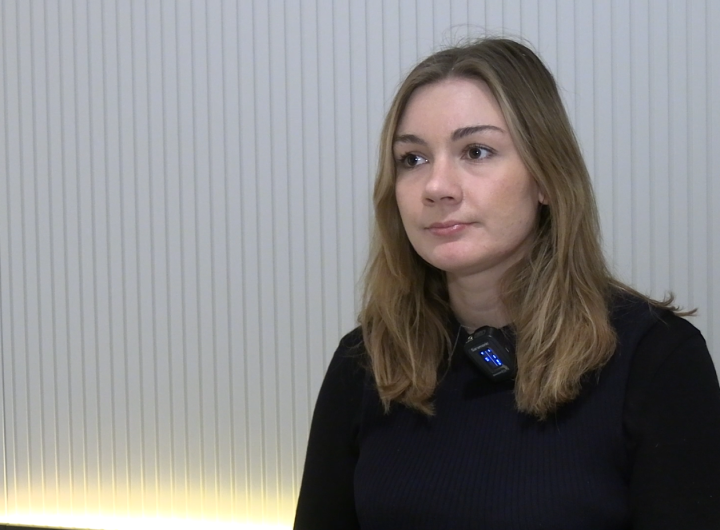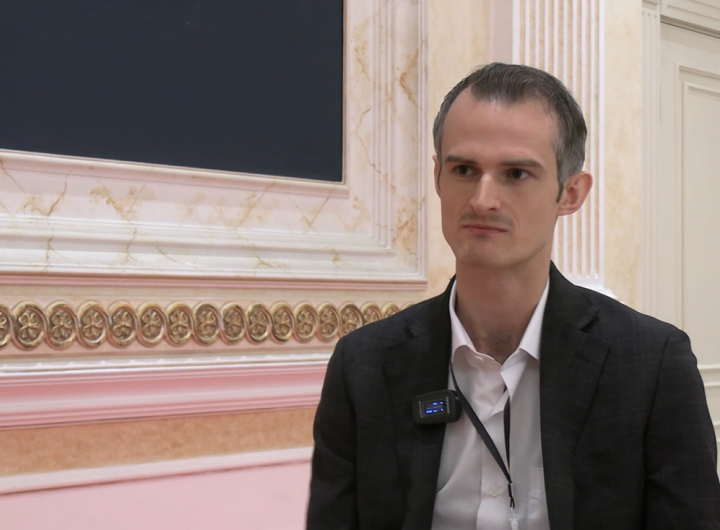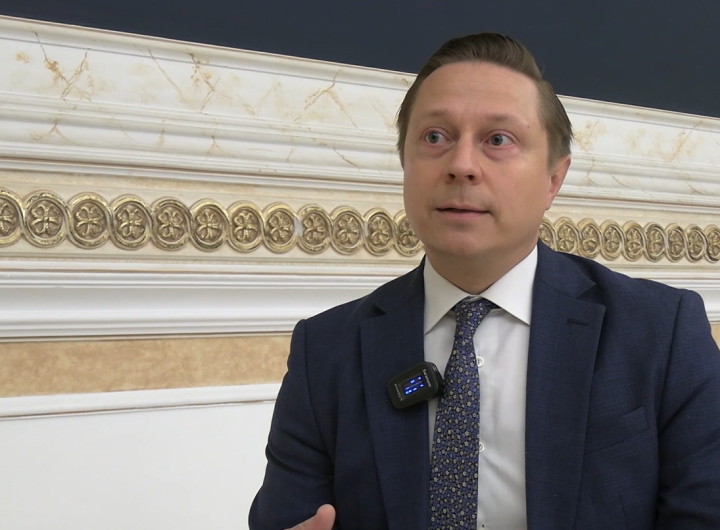
The senior analyst at the Institute for Strategic Dialogue, Elise Thomas, says that since the beginning of the Russian military aggression in Ukraine, the battle has already moved to the information space.
Thomas speaking to the Geopost points out that this move by Russia from day one has been made to create propaganda and misinformation.
“Since the beginning of the invasion of Ukraine, we have seen Russia move the battle into the information space, even in the early days of the invasion by creating propaganda and disinformation,” Thomas points out.
“A number of fake videos that they created at the beginning of the re-invasion of Ukraine in 2022 and since then we have a number of different tactics that we are seeing on social media platforms targeting the international community,” she added.
Asked if there will be a quick end to Russian aggression in Ukraine, Thomas is skeptical that such a thing will happen soon.
“I’d like to say yes, but I think the answer is no. I can’t see a short end to this conflict, I kind of suspect we’re in a position where this will continue for years” Thomas continues.
According to her, since the first days, Russia’s reasoning for attacking Ukraine has been propaganda.
“We have seen the significant change in justification since the beginning of the war, which I think is a reflection of the fact that it has always been propaganda all along and not their real reasons,” she says.
Finally, the expert from the Institute for Strategic Dialogue asserts that “Russian propaganda is very good at exploiting mistrust and creating rifts between real journalists and their audience, and I think the relationship of trust is quite important.”
Full interview
The Geopost: How do you see Russian aggression in Ukraine and which methods is using Russia against Ukraine?
Since the beginning of invasion, we’ve seen Russia really kind of take the battle to the information space, even in the initial days of the invasion, creating propaganda and disinformation.
A number of fake videos they created in the lead up to the renewed invasion of the Ukraine in 2022, and since then we have an ongoing array of different tactics that we are seeing on social media platforms targeting the international community, the opinions of the international community as a way of political pressure over the leaders in international countries, particularly over their ongoing support for the Ukrainians in terms of weapon donations but also in other forms of political support.
The Geopost: Do you see the Ukraine crisis ending soon?
I would like to say Yes, but I thinks the answer is No. I can’t see short end to this conflict, I sort of suspect that we are in a position that this will continue for years possibly, and as the conflict drags out, I think we will see more actions from Russia in terms of targeting particularly public opinion in the EU, for example we’ve seen already they are targeting public opinion in Germany, to start tensions over Ukrainian refugees in Germany and other economic pressures that are coming to Germany and other parts of Europe as a result of the sanctions on Russia and I think we can expect that that will continue and that will become a significant tactic in Russian disinformation going forward.
The Geopost: From your investigations and researches, which topics are most used against Ukraine?
So, initially the justification seemed to be based around the idea that Ukraine was full of Nazis and they have to cleanse the Ukraine of the Nazis and save the Ukrainian people then they shifted to a justification that it was because there were these dangerous bio labs in Ukraine and now they are increasingly shifting to more kind of as a war between Russia and NATO and as existential threat to the Russian federation and that’s how they are continuing to sell it to their people.
So, we have seen the justification shift significantly since the beginning of the war, which I think is reflection of the fact that it was always propaganda all along and not their real reasons.
The Geopost: Do you have any message to new media researchers or journalists, what can they do more to fight this?
I think communicating in a clear and sort of compelling way, checking your facts always, checking your sources always, I think that would go a long way I think also working to maintain the trust with audiences.
We know that Russian propaganda is very good at exploiting distrust and creating fractures between real journalist and their audiences and I think that the trusting relationship is so important. /The Geopost/

 Disinformation on the Rise, Georgia: Russia Exploits Societal Vulnerabilities in Romania and the Balkans
Disinformation on the Rise, Georgia: Russia Exploits Societal Vulnerabilities in Romania and the Balkans  Olena Churanova: The Kremlin understands that any conflicts or provocations weaken other countries
Olena Churanova: The Kremlin understands that any conflicts or provocations weaken other countries  Klingova: Pro-Kremlin narratives threaten democracy in Slovakia and the region
Klingova: Pro-Kremlin narratives threaten democracy in Slovakia and the region  Vasickova: Chinese disinformation on the rise, amplified by pro-Russian narratives
Vasickova: Chinese disinformation on the rise, amplified by pro-Russian narratives  Election Integrity, Graham Jones: International Cooperation Needed Against Disinformation
Election Integrity, Graham Jones: International Cooperation Needed Against Disinformation  Russian Influence and Hybrid Operations, Pyysalo for The Geopost: Balkans Must Fight Disinformation
Russian Influence and Hybrid Operations, Pyysalo for The Geopost: Balkans Must Fight Disinformation